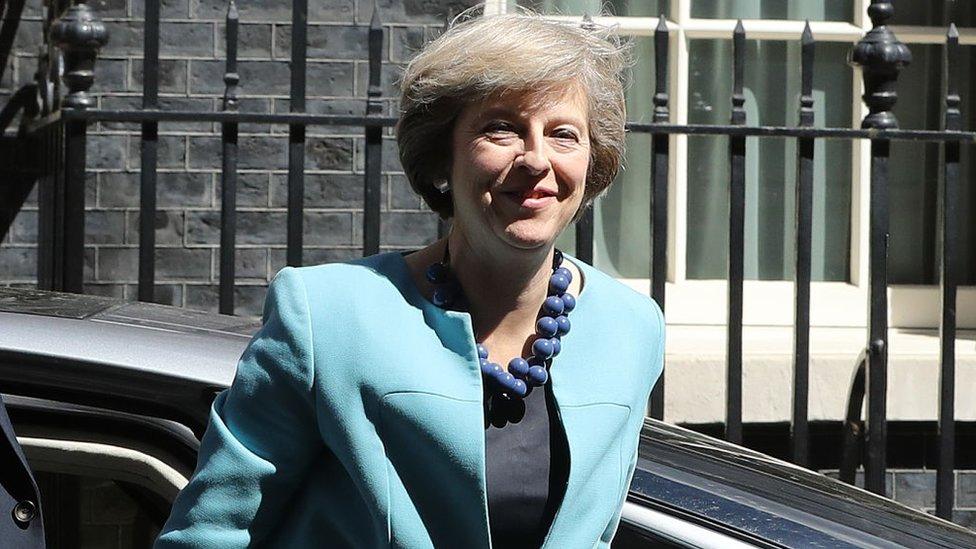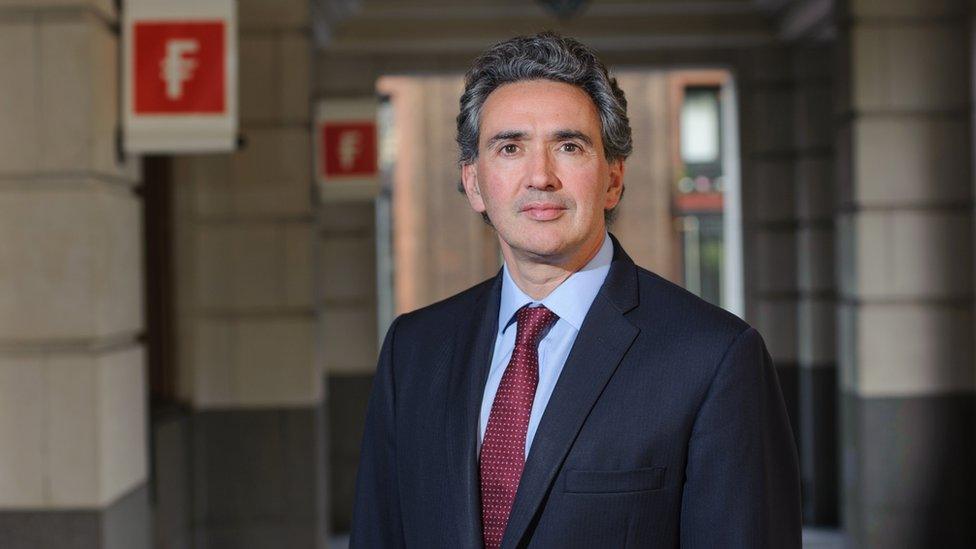Fidelity backs Theresa May's executive pay plans
- Published

One of the UK's biggest fund managers has backed Prime Minister Theresa May's proposed crackdown on executive pay.
Fidelity International said Mrs May's proposal to make shareholder votes binding would help investors to influence company policy.
The firm manages assets worth almost $250bn (£185bn) worldwide.
Fidelity has long called for companies to adopt incentive plans for top executives that encouraged longer-term thinking.
Mrs May has proposed making shareholder votes on executive pay binding, rather than advisory.
The prime minister also wanted more transparency about bonus targets and for companies to reveal the ratio between chief executive pay and that of its average worker.
Dominic Rossi, Fidelity's global chief investment officer of equities, said: "We first called for an annual binding vote in 2012. Extending shareholder powers even further will add significant momentum to our efforts to better align executive pay rewards with shareholder interests."

Fidelity's Dominic Rossi
In 2013 Fidelity said it would start voting against boardroom pay plans unless companies forced executives to hold shares more than three years before cashing them in.
Just four companies on the FTSE 100 had holding periods of five years or more in 2013, with periods of between three and five years for another 13, the firm said.
Its campaign had helped increase the number with five-year long-term incentive plans (LTIPs) to 48, with another 17 having period between three and five years.
Fidelity has continued to challenge companies that have not extended the holding periods for their LTIPs to five years or more.
The fund manager has voted against at least one remuneration proposal at 55% of annual meetings of FTSE 350 companies this year.
Big companies including WPP, BP and others have come under fire from shareholders for their executive pay arrangements at recent annual meetings.
- Published11 July 2016